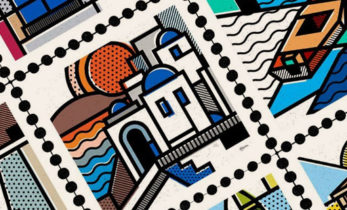Greater than 5 minutes, my friend!
What Is Your Translator’s Archetype?
Archetype is a universally understood type or prototype of a pattern or behavior upon which other patterns or behaviors are based or modeled.
Most teenagers, for example, tend to imitate the coolest person they know so much that a certain teenage archetype is usually created, such as the character of Fonzie in the American TV series Happy Days. But some of the archetypes created by some grownups and eagerly imitated by other grownups are not nearly as funny as Harry Winkler was in his role as Fonzie in Happy Days.
In a famous simulation study funded by the US Office of Naval Research in 1971, Philip Zimbardo, a psychology professor, designed a mock prison in the basement of Stanford psychology building in which 24 males students were randomly assigned the roles of prisoners and guards. Zimbardo was surprised how readily and willingly the participants assumed their archetypal roles. As the guards enforced increasingly more and more drastic authoritarian measures, the prisoners meekly submitted to these measures. Only two prisoners quit the experiment early. The study had to be stopped after 6 days because things were getting out of hand.
The concept of a “mentor” shares some similarities with the concept of an “archetype”. A mentor in the translating profession is usually an older, experienced translator who teaches newbie translators, sometime for free, how to make it in the business. Every now and then I read a translator’s blog post or an article (in the ATA Chronicle) about how rewarding it can be to be a mentor to younger translators.
The problem that I see here is that the mentor will naturally suggest to a novice translator that his or her way of running a freelance translation business is THE WAY, or the TAO OF THINGS, as the Chinese put it, because that is all the mentor knows and understands.
But surely there are many different archetypes that new translators can adopt and adapt for themselves, or discard as unsuitable. And whether an archetype is suitable for your freelance translation business will depend on more aspects than can be mentioned in a short post.
A different archetype will be suitable for an outgoing person who loves to interact with other people. A mentor pushing this type of archetype will tend to stress for example the importance of a well designed business card, combined with elegant appearance and what is referred to as “an elevator speech” – a brief introduction of your business about as long as a ride in an elevator. But this is not an archetype that would be compatible with Mad Patent Translator. The last time when I made a somewhat serious attempt at an elegant appearance was probably more than three decades ago at my wedding.
I also happen to think that business cards are so twentieth century. Make that nineteenth century. I do have a big stack of cheap business cards, but since my customers are widely dispersed not only in this country but also in just about every continent, I only use business cards when I exchange them with other translators at a conference.
Many if not most translators are typically introverts who would rather die than embarrass themselves with an elevator speech and who would absolutely agree with Jean Paul Sartre’s quote that “l’enfer, c’est les autres” (hell is other people), as I wrote for instance in my post about translator’s dementia.
A completely different archetype would be also suitable for a translator who really simply wants to translate and who does not enjoy at all the business of running and growing a business. The marketing archetype for this kind of translator is fairly simple: join your local translators’ association, post your particulars on Proz and other “portals” and “marketplaces” for translators, and wait for translation agencies to throw business your way. You will probably never make much money because about 50 percent of what you make will go into the agency’s pocket before your government appropriates at least 30 percent of what is left over, but you will not have to bother yourself with too many annoying details of an independent freelancer’s business.
If this archetype still does not work, the “I-only-want-to-translate” translator often combines this rather passive approach with a slightly more active one, namely with e-mailing of resumes to translation agencies. There are also lists of agencies that translators can purchase in order to send their particulars to hundreds or thousands of agencies. I delete dozens of such e-mails without reading them every day because somehow I ended up on one of these lists.
This is not an archetype that I personally would suggest to translators.
There is also the archetype of a businessman (businesswoman) translator who enjoys the business aspects of running a business as much as the translating part of it. The most important question to figure out, if that is the archetype that would suit your language combination and your personality best, is where the damn clients for your translation business are hiding. The problem is that the answer will depend again on many aspects, in particular your language combination and subject experience.
When I started my translation business in 1987 in San Francisco, I was exposed to many different translator archetypes because the Bay Area back then was like a big nest where a large number of really weird translators were living, some in the City and some in the suburbs. Those were the days.
After a while I realized that it is probably not a good idea to try to imitate a certain archetype. We are all very different people and translators in particular do not fall neatly into a few archetype categories.
Some translators, especially the beginning ones, don’t really specialize, at least not yet. Some may specialize too much for their own good. Technical translators such as myself don’t really have that much in common with financial translators or people who translate novels, (I did get a feeling for both of these fields briefly when I had no other work, but I realized that it was not for me).
Your language combination will probably shape your particular translator’s archetype more than most other aspects.
Instead of trying to imitate a successful translator, it may make more sense to try to identify the differences between translators that you yourself know and create your own personal archetype based on what you think would be best for the type of person and translator that you are or want to be.
In spite of what hundreds of motivational speakers are claiming when they are trying to sell you their latest book or collection of CDs or DVDs, what worked for them may or may not work for your archetype.
At the risk of sounding like a motivational speaker or mentor myself, I think that to be successful in any business, including the translation business, the most important thing is probably to first identify who you really are and what it is that you can and want to do with what you’ve got.





I think my translator’s archetype is constantly evolving. I’ve seen the manifestations of all the different types of archetypes that you’ve described in your post, Steve. I think at this stage of my archetype development I’m closer to a balance between business and translation. I enjoy doing both things and constantly looking for ways to hone my craft. I absolutely agree that language pair and specialization play a major role in forming of your archetype.
Great post! I also feel like I’m evolving. When I first became a freelancer many years ago I had lots of insecurities because I didn’t know what my specialization was. I’m too shy to approach people and the thought of putting myself out there was frightening. I eventually found a comfy contract that kept me very busy and working for many years.
Now, I’m back in the freelance scene and going through the process of creating profiles has allowed me to see how much I’ve evolved since then. I still find the marketing aspect of things frightening and intimidating but have learned to be more proactive about it.
It’s great to see it’s not just me 🙂